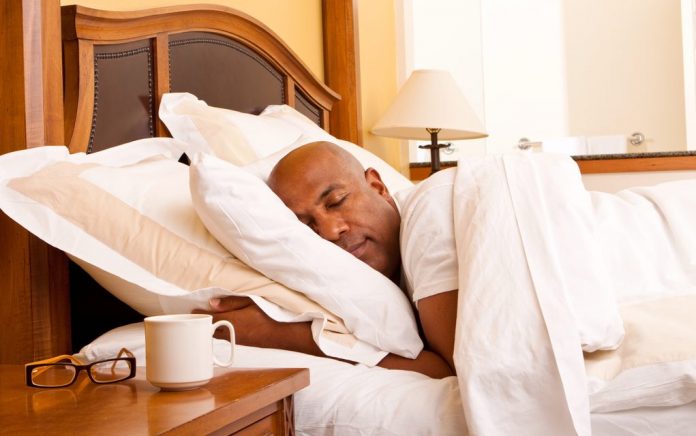
Would you like to get a better night’s sleep? Has your child been diagnosed with attention deficit hypersensitivity disorder (ADHD), sensory issues, or autism and you’re looking for a natural way to help with symptoms? Are you looking for a drug-free way to deal with anxiety? Weighted blankets and other weighted items may be the answer to your problem.
What are weighted blankets and other items?
The whole concept is simple and incredible. Weighted blankets, vests, lap pads, and stuffed animals are items that are made with the added weight evenly distributed throughout the entire product. If you have ever been given a weighted vest to wear when you were having an X-ray taken, you may be familiar with the concept.
Read about curing anxiety and ADHD—with a weighted blanket.
Some say that using a weighted blanket or other items is like getting a hug without the arms. Weighted products provide the protective feel and security of a hug and keep on giving as long as the person is connecting with the weighted object.
How do weighted blankets and other items work?
The whole idea behind weighted blankets and other items is that the weight provides comfort to the wearer by stimulating the body’s natural calming, comfort, or sleep hormones, such as serotonin and melatonin. The science behind this is called deep touch pressure. When individuals wear a weighted vest, are under a weighted blanket or lap pad, or are holding a weighted stuffed animal, they can experience the benefits of the increased production of these hormones.
People who use these products say they feel protected, safe, and less anxious or worried. This feeling of safety or protection is the main reason why weighted products are used among people who suffer from ADHD, post-traumatic stress disorder, anxiety, and obsessive-compulsive disorder.
Weighted objects can be especially helpful for restless or overly stimulated children when they are called upon to sit still, such as in class, in assembly, in a car or other form of transportation, or in a movie. The use of weighted vests, blankets, or lap pads can calm the nervous system and promote the release of serotonin in such situations.
Weighted blankets also can help reduce restlessness during the night. This, in turn, can translate into less insomnia and more restful sleep for the affected individual and the rest of the family.
Read about 10 ways to get rid of anxiety naturally
Another use for weighted items is to help children with autism make the adjustment when switching from one activity to another, such as coming back into the classroom after recess or adjusting to home life when they return home from school. Such changes can be traumatic for kids with autism. Research has shown that making use of a weighted product as part of the transition period can help kids adjust to the next activity.
How to select a weighted blanket or other items
There are several factors to consider when purchasing a weighted blanket or other weighted product.
Weight: The main concern is weight. You want an item that is comfortable as well as effective. A general rule for weighted blankets is that they should weight 10 percent of the person’s weight. That is, a 50-pound child should do well with a 5-pound blanket, while a 150-pound adult should respond well with a 15-pound blanket.
Material: When choosing a weighted blanket, vest, or other product, select the material that best suits your needs and comfort. Everyone has favorite materials, and fortunately, there are a variety of fabrics and textures from which to choose.
If you are selecting a weighted blanket, vest, lap pad, or toy for your child, allow the child to help with the selection. The texture and color of the material and the appearance of the blanket, lap pad, or toy should be something that is calming and acceptable to the child. A material that provides a positive sensory experience and an animal pattern or other interesting appearance will give you much better results.
Vests: Weighted vests apply even resistance and weight to the entire area of the body covered. These vests are typically used for children who have ADHD, autism, or sensory disorders because they can relax the child by providing a “hugging” sensation.
Weighted vests usually have several pockets so you can redistribute weights in the form of gel, silicone, steel, or sand as needed. Some weight pouches are made of hydrogel, which can be heated or cooled to provide additional therapeutic effects.
Research on the health benefits of weighted vests has shown that they can be effective in improving the behavior, attention, and impulses of children with ADHD. For example, the authors saw improvements in fidgeting, getting out of their seats, and speed of processing and responding to information. However, they did not see any significant improvement in impulse control or vocalizing. In a classroom situation, lap pads are typically more desirable because they are less conspicuous and easy to carry and handle.
Bottom line
Weighted blankets and other items can provide a great deal of comfort for both children and adults who experience insomnia, anxiety, restlessness, OCD, PTSD, and other similar conditions. Talk with a knowledgeable healthcare provider before making your purchase of a weighted product if you have any questions about the best one for your needs.
Try Morphus Sleepus, a non-habit-forming sleep supplement. This supplement addresses sleep issues during perimenopause and menopause by reducing cortisol levels, relaxing the body and mind, and promoting optimal sleep.
Sources
Harkla. Do weighted blankets work for ADHD? 2017 Jan 31
Lin HY et al. Effects of weighted vests on attention, impulse control, and on-task behavior in children with attention deficit hyperactivity disorder. American Journal of Occupational Therapy 2014 Mar-Apr; 68(2): 149-58










